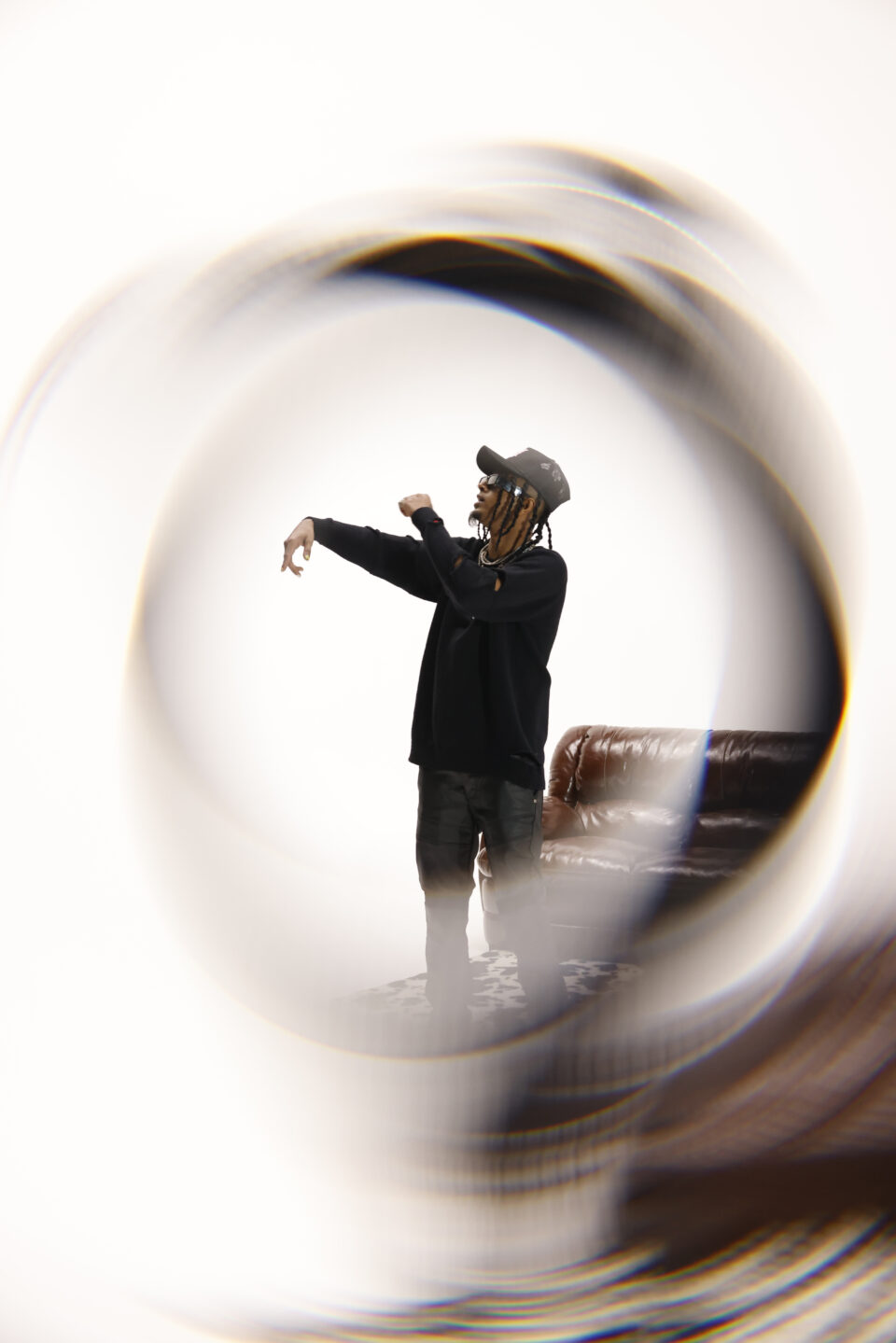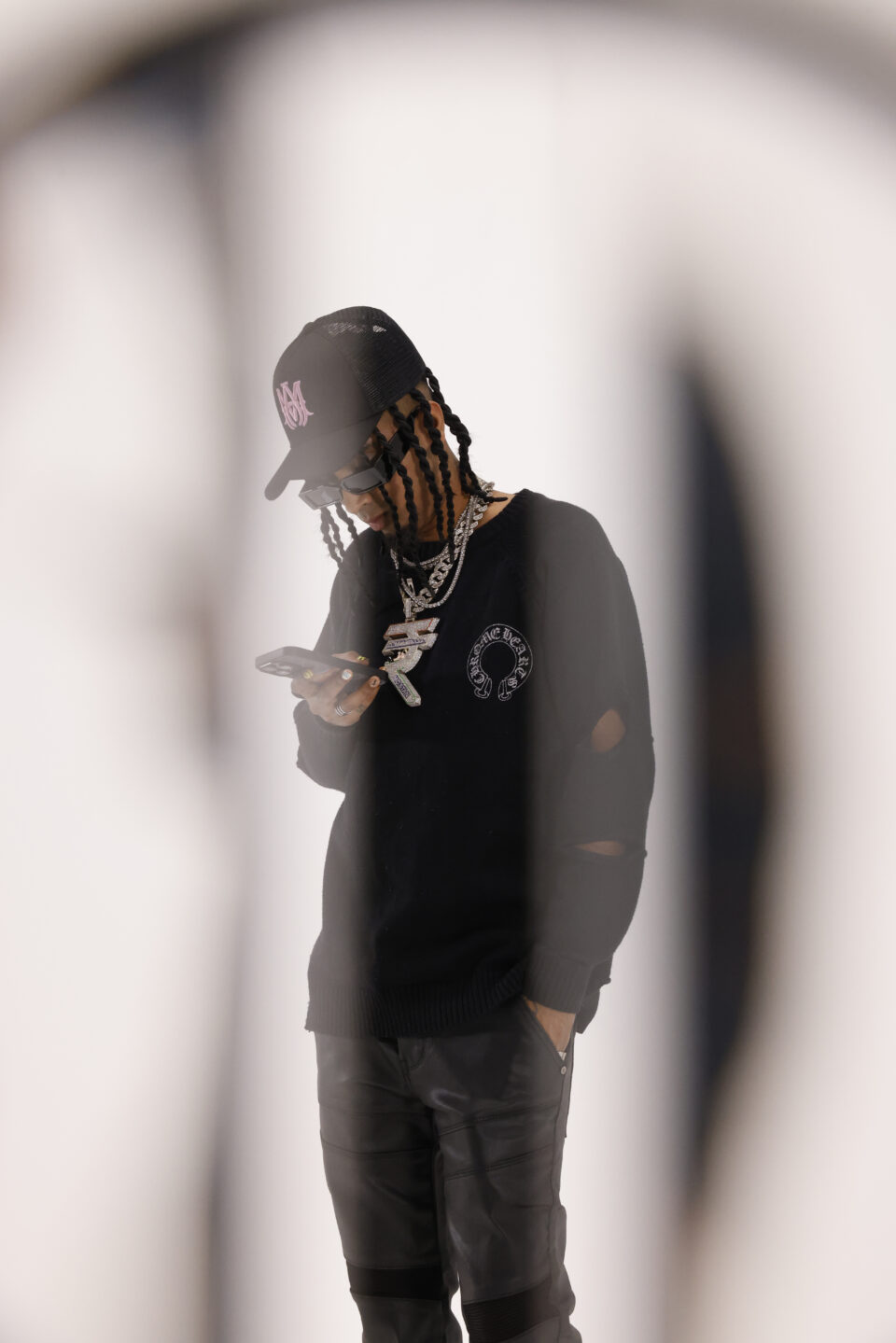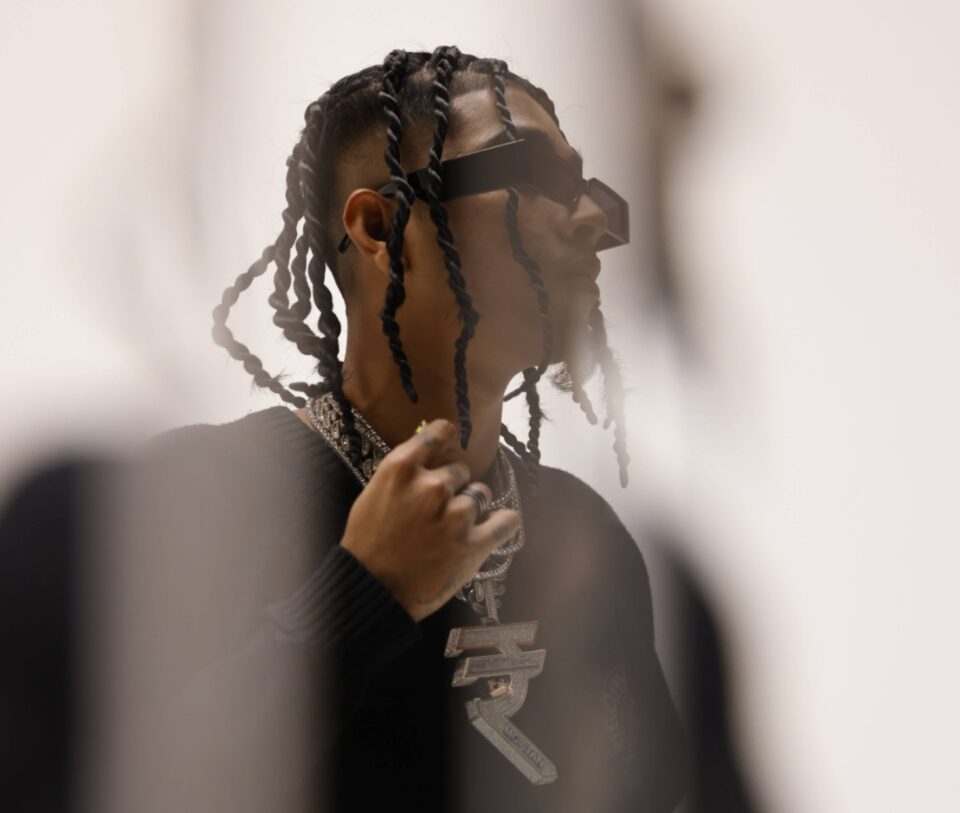
MC Stan
The Pune rapper is living in 2050
MC Stan is not only living in 2050, but is also shaping it. His significance in the Indian music scene goes beyond his musical prowess but also reflects what it means to be an artist in the country today. He’s introduced his own revolution in hip-hop, one that perhaps few notice because they are simply oblivious to it. The Pune artist straight from Tadiwala Road is bringing to light the hidden shadows of the Indian music scene by confronting uncomfortable truths that many prefer to ignore. It is the harsh reality of a divided nation where a select few enjoy the champagne lifestyle to a soundtrack that drowns out the struggles of the forgotten many. Amid all this stands the young 25-year-old Stan — part hero, part troublemaker, a rebel with a cause.
Let’s be blunt, shall we? The so-called “music-enthusiasts” who caper around with their Airpods and Spotify playlists are nothing but hypocrites. They’ll eagerly embrace Lil Wayne’s profanity as if it were profound wisdom, but when it comes to artists like MC Stan, suddenly they turn up their noses. “Oh, but his language is too crude,” they’ll scoff, feigning ignorance as if they’ve never encountered a swear word before. But the truth is, while these “enthusiasts” look down on anything that doesn’t fit their sanitized version of reality, there’s a whole other India out there—a grimy, gritty India where people don’t give a damn about taste or trends. They know hardships like the back of their hand. They know struggle, they know adversity, and they damn well know MC Stan.
Stanny, real name Altaf Shaikh, is not simply a rapper from Pune, Maharashtra, or as we all know it, P Town; he’s a visionary. His approach sets him apart from many creatives of his generation. Dismissing work based on a reference-oriented approach, whether for music or music videos, where everything becomes a recycled version of something else, he emphasizes his focus on authenticity. Referencing his songs like “Snake,” which now stands as a pinnacle in his body of work, he transports us back to the times when he dared to introduce fresh styles not only into his own creations but also into the broader Indian hip-hop scene. These efforts faced backlash initially, but now they’ve either been imitated or have served as inspiration for numerous artists striving for originality. “I don’t care about the other rappers though,” he says “In fact I’m happy people are able to make a living off of my musical style. But that’s just not how I want to do it.”
Moreover, in almost every MC Stan song, you’ll encounter a call to shift mindsets. But he doesn’t just drop these lines and move on; nor does he lecture or dictate. Instead, he crafts vibrant narratives, immersing both himself and his audience in the storyline, beckoning you to stand shoulder to shoulder with him. Then, with just the right words, he challenges you to reassess everything. Confronting the challenges facing his community head-on, he speaks directly to the youth, encouraging them to break free from the cycle of negativity. Whether grappling with adverse influences, violence, discrimination, or unemployment, he draws from his own encounters, transforming them into invaluable lessons.
While others chase the next hit, MC Stan is focused on something deeper, something meaningful. He’s out to change culture and guide the misguided and misunderstood. What distinguishes him is his knack for blending storytelling with social critique, offering us a glimpse of a future where art goes beyond mere entertainment and serves as a catalyst for societal transformation—a concept that’s ahead of its time in today’s often superficial music industry landscape.

In his 2021 track “Rehmani Keeda,” Stan vividly portrays the struggles of boys wandering the streets of the neighborhood while their mother toils away at work. He delves into the harsh reality of parents working tirelessly all day due to poverty, prompting listeners to reflect on what they’ve done in return for their parents’ sacrifices, evoking a sense of shame. His poignant lyrics include lines like, “Maa teri kaam pe jaari sadra tu hood pe / Sharam aani mangti bro teko khud pe /… / Maa baap ne kaam kiya tere liye dhoop mei / Tune unko kya diya bete ke roop mei…”
Taking a trip back to 2019, in his track “Lowkey,” Stan casually adopts the role of an older brother, humorously addressing unemployed youngsters who seem to tire easily. He portrays common situations where individuals drift into small-time hustles or take up jobs at food stalls, circumstances all too familiar to many street kids. He highlights the struggles of those who have lost their way, neglected to call their mothers, or abandoned their dreams after minimal effort. With a blend of mockery and motivation, Stan encourages self-reflection and resilience, urging listeners to push through challenges and pursue their passions rather than succumbing to despair. His lyrics, such as “Arey Gotya arey Gotya hook gaya tu / Ghar ka dekh rasta kaise bhool gaya tu / Matke ke dhande pai baith gaya tu / Maa ko call karne ka bhool gaya tu / Chinese ke gaadi pe lag gaya tu / Sirf do gaane aye dekh thak gaya tu,” encapsulate this sentiment with wit and authenticity.
“Ek Din Pyaar,” a track widely heard, sees MC Stan delving into the harsh realities of youth entangled in drugs and violence, drawing from firsthand experiences. He vividly describes the numbing effects of popping pills, recounting a brutal encounter with the police, a distressingly common occurrence in India regardless of guilt. Stan presents a powerful moment where one individual pledges unwavering loyalty to their crew, equating them to brothers. However, he provocatively questions this loyalty, contrasting it with the anguish of a mother left at home, crying and praying for her child’s safety. With impactful lyrics like “Pill bitha dala maine meko numb laga / Police kutte jaise maar ri lekin lu*d laga / Mat kar, patkan, latkan ek bola bhau sathi kai pan / Bhau sathi kai pan, pan kashal karto bhau sathi kai pan / Aai pan radat basti, din raat aai pan,” Stan challenges listeners to reconsider their allegiances and prioritize familial bonds over destructive influences.
This aspect of his lyrics represents just a fraction of his overall musical talent. His focus isn’t on concocting lyrical miracles or polished compositions solely for aesthetic appeal. Instead, he exhibits a remarkable degree of self-awareness. From the outset, he openly acknowledges his inability to deliver catchy hooks (“Hook nahi gaane aata kasam se mereko” from his 2018 hit “Wata”), his lack of understanding of pitch and melody, despite which his music resonates deeply with audiences (“Na sur na taal na awaz meri khaas, phir bhi rehta sabke dil ke paas” from one of his initial collaboration tracks “Trippin ft. MC THC”), even if it may sometimes cause discomfort to the ears (“Kaan me hoti takleef sunke aisa ganda sound hu mai” from one of his notable diss tracks “Samajh Meri Baat Ko”).
He then delves deeper into language, opening up the conversation to something much larger than music and industry talk. He gets into the heart of being human, discussing people, storytelling and the impact of raw expression. For him, his linguistic choices are not just a reflection of shock value or rebellion but rather a deliberate and raw approach to telling stories. “I refuse to censor my language or change who I am for today’s societal norms,” asserts MC Stan. He says it with a bit of attitude but then goes on to balance it with his forgiveness and understanding for the haters and the doubters. He knows that change takes time, but he’s confident in his ability to write the future with his words and his music. With unwavering hope, he repeats that change is inevitable, by accepting that everything has its course.
“I refuse to censor my language or change who I am for today’s societal norms.”
MC Stan
Juggling his vision of the future and his lessons from the past, Stan stays grounded. He shares his learnings from a mix of real, meaningful and downright bizarre experiences along the way. You can tell he’s long reflected on them, weaving fun yet insightful, and often rhyming one-liners like “Jayega kaam ko, toh khayega shaam ko” (If you work by day, you’ll eat by night) and “Insaan hi bangayela hai Shaitaan” (Humans have themselves turned into the Devil) throughout the conversation, neatly tying up each topic we touched.

Reflecting upon his time on Bigg Boss (one of the biggest Indian reality shows) season 16 and the relationships he developed during and post his victory, he goes on to acknowledge that “one should never take anyone lightly, or for granted.” Though he doesn’t spell it out, you can sense the shift in his tone when he says that, becoming more reflective and introspective. But of course, without saying, this also goes for people’s sentiments towards him. He is fully aware of how he and his image have evolved over time.
Without holding back, he also calls out some of his fans who cling so tightly to certain aspects of his music that they resist anything new, demanding “we want this Stan, or that Stan” referring to specific songs and styles from his career. They often forget it all comes from the same place. The good, the bad and the ugly all exist within an artist. “It is an artist’s responsibility to explore new territories and push boundaries,” he says. It’s a challenge MC Stan gladly accepts. Highlighting the hypocrisy of the fans who demand a certain version of him, he points out how they’ll be the first to criticize him if he only puts out work that’s similar to his greatest hits. “Navigating this complexity means staying true to yourself while also remaining open to growth and evolution as both an artist and a person,” he adds.
He draws a clear line between being a rapper and a hip-hop artist. “Hip-hop is not about crafting poems or reciting shayaris,” he emphasizes, echoing sentiments from his early career hit “Samajh Meri Baat Ko.” While poetry is beautiful, or perhaps beautiful words embody poetry, the courage to say the raw-unfiltered truth has its own poetic essence. That’s the heart of the art-form and he feels its time has come. He realized this the day he saw people selling bootleg T-shirts bearing his name and his face. It reflected the desires of those who couldn’t access his shows or couldn’t afford to dress like him but still wanted to be a part of it. While he knows the importance of not catering to fans or conforming to their expectations, he also respects their love and support that has propelled him to where he is today.
His latest tracks barely entered our conversation, as our interview evolved into much more than a platform for him to plug his music. It transformed into a relaxed hangout session where Stan freely expressed his thoughts. It was only after being prompted, he chose to playfully tease his upcoming album Mehfeel, hinting at a wave of innovation unlike anything we’ve heard from him before. Mindful of the spotlight he’s under, he treads carefully, revealing just enough to pique curiosity without giving away too much. While subtly acknowledging imitators, he maintains his artistic integrity by viewing imitation as a form of flattery. Yet, there’s more to Stan than meets the eye. His approach is distinct, his perspective refreshing. He’s not just a wordsmith; his vision extends far beyond music. He’s riding high on success, but his dreams reach towards a better future for the music scene in India. And you know what? He’s already scheming to make it happen.




